Table of Contents
You probably know that reading is–alongside writing, listening, and speaking–one of the four cardinal skills in learning a second language. But did you know? When you read in a foreign language, you are developing not only your reading skills but also your productive language skills–writing AND speaking.
Reading is such an effective tool for developing spoken fluency that it really should become part of any serious Arabic learner’s routine. But how you read makes all the difference. Let’s take a look at two approaches to reading: extensive reading and intensive reading.
Extensive Reading
When we read something in our native language, we just read. Whether it be a news article, novel, or history book, the text is usually not challenging. We understand what we’re reading, and we read it once. We’re reading for comprehension, for the message. This is essentially what extensive reading is.
Intensive Reading
On the other hand, when we are learning a foreign language, most of us tend to be in ‘study mode.’ We approach texts differently than we do with our native language. Of course, it’s more challenging; we don’t understand everything we’re reading in Arabic.
But here’s where most learners go wrong: We think our goal should be to understand 100%, and so we’re compelled to look up every new word and write out a list to review later. This approach is called intensive reading. And, although it has its benefits and is appropriate for certain kinds of texts–notably shorter ones–it is often the only kind of reading that language learners engage in. (Let’s blame it on the way we’re taught languages in school–with a misplaced emphasis on grammar and memorizing vocabulary!)
Foreign Language Mastery is About Skill–Not Knowledge
In school, most subjects taught are knowledge-based (rather than skills). History is not a skill. Science is not a skill, either, per se. We spend a lot of time learning about academic subjects, and unfortunately, this often carries over to our approach to learning a second language. But knowing and being able to use Arabic successfully is a skill–not knowledge.
Let’s think about other skills, such as learning to drive, as analogies. Of course, we need to learn the rules of the road, about safety, and what traffic signs mean, but passing the written driving test doesn’t mean you can drive. You have to practice the skill of driving until it becomes second nature. And sports: Reading a book about basketball doesn’t mean you can play well. (Coaches know the game inside and out… but can they play as well as the players on the team?!)
A Change in Mindset
What we need to do is change our mindset. Learning Arabic doesn’t just consist of studying it. You also need to use it–practice it. Just listen. Just read. Just speak. Just write. And this is not studying. (And to be clear, by ‘study,’ I mean, explicitly try to learn new grammar, new vocabulary, do conjugation drills or pronunciation exercises, and so on)
My rule of thumb is to study 20% of the time and use/practice 80% of the time. That is, for every hour you sit down and study, you should practice the language for four hours. (And by ‘practice,’ I mean build fluency by actually using what you have already learned without a conscious effort to learn anything new.)
I can’t emphasize this next point enough, but I’ll only say it once: To master Arabic, you need an enormous amount of exposure to it–through listening and reading. Knowing grammar and vocabulary will be of little help toward developing fluency. (And think about it. This is how you learned your own native language–through continuous, prolonged exposure and unconscious acquisition. We didn’t have to learn the grammar of our native language to be able to form sentences and start speaking; we acquired it. The same goes for vocabulary. We learned most of the vocabulary in our native language by figuring meanings out through context.)
How to Implement Extensive Reading
We now know what extensive reading is. We know why it’s important and how it can help us become more fluent. So, how do we go about reading extensively? We just need to keep some key points in mind to develop good extensive reading habits in Modern Standard Arabic or colloquial Arabic dialects.
- Learn to feel comfortable not understanding everything in a text. If the text is the right level for you, you should at least be able to understand most of it (or at least the gist). Don’t stop to look up new words (except very occasionally). Your goal is not to understand every word.
- Read for pleasure. Find something you enjoy reading and read as much as you can. Don’t force yourself to read something on a subject you find tedious or finish a book you wish you hadn’t started. This will make it harder for you to pick up the book and make reading a daily habit. (Of course, especially in colloquial Arabic, level-appropriate reading materials are hard to come by. This is why we have been developing simplified readers for learners.)
- Quantity over quality. It’s better to read ten books extensively than one book intensively. Remember, extensive reading is far more effective for developing fluency. If you spend an hour analyzing vocabulary and grammatical constructions and are more concerned about working on a beautiful layout for color-coded notes in your notebook, then you’ll have an impressive notebook, but you won’t be any more fluent.
Let us know in the comments your experience and thoughts on extensive reading.

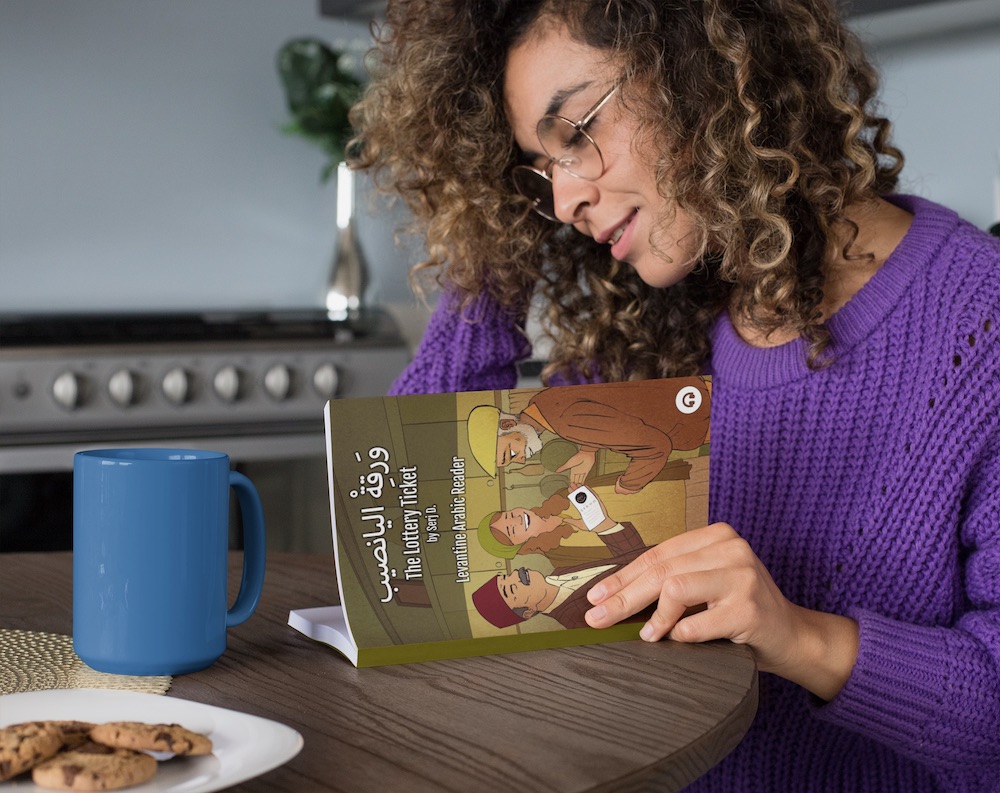

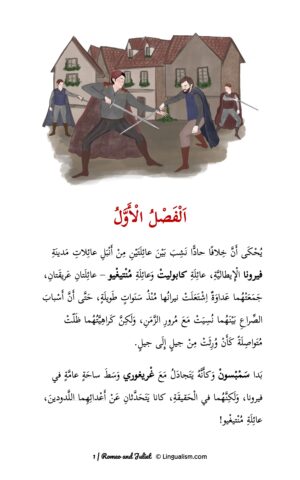
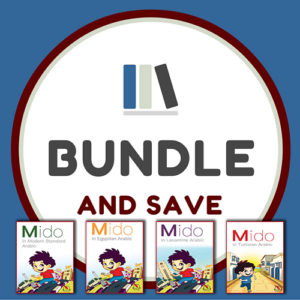

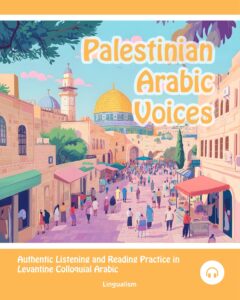
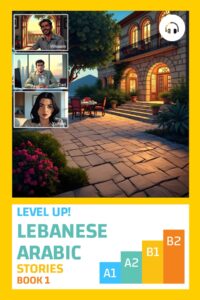

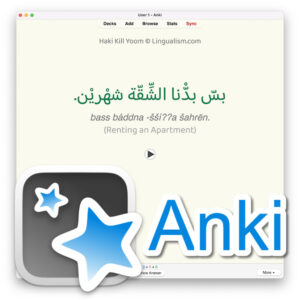
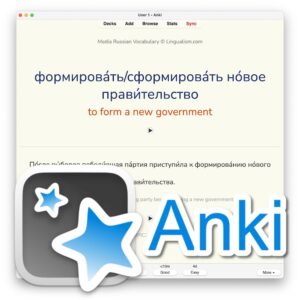
You need more reading material for A1 and A2 level in Egyptian. A few readers, especially accompanied by premium audio, would be wonderful. Shuwayya is good but too advanced for A1 and A2. Too much complicated vocabulary and expressions. If you provide more materials for the A1 levels, those students will move quickly into your B1 level materials.
I have bought all the Palestinian and Jordanian dialect readers. They are all great stories and just what my Palestinian tutor and I are looking for. I am particularly fond of Petra… and wish that there were the “slowing down the text” button for the audio as there is for the other readers and other books. Is there a way to add that ?
I added the play rate button. Sorry about that. All of the audio playlists should have it, but I missed checking its box in the settings for this one. I’m glad you’re enjoying the books!
It would be very helpful to have word lists in Arabic with English translation at the back of the readers.
Same thoughts, you need more A1. This website has a entry barrier and I have been buying a lot of books here too difficult for me and ended up not reading.